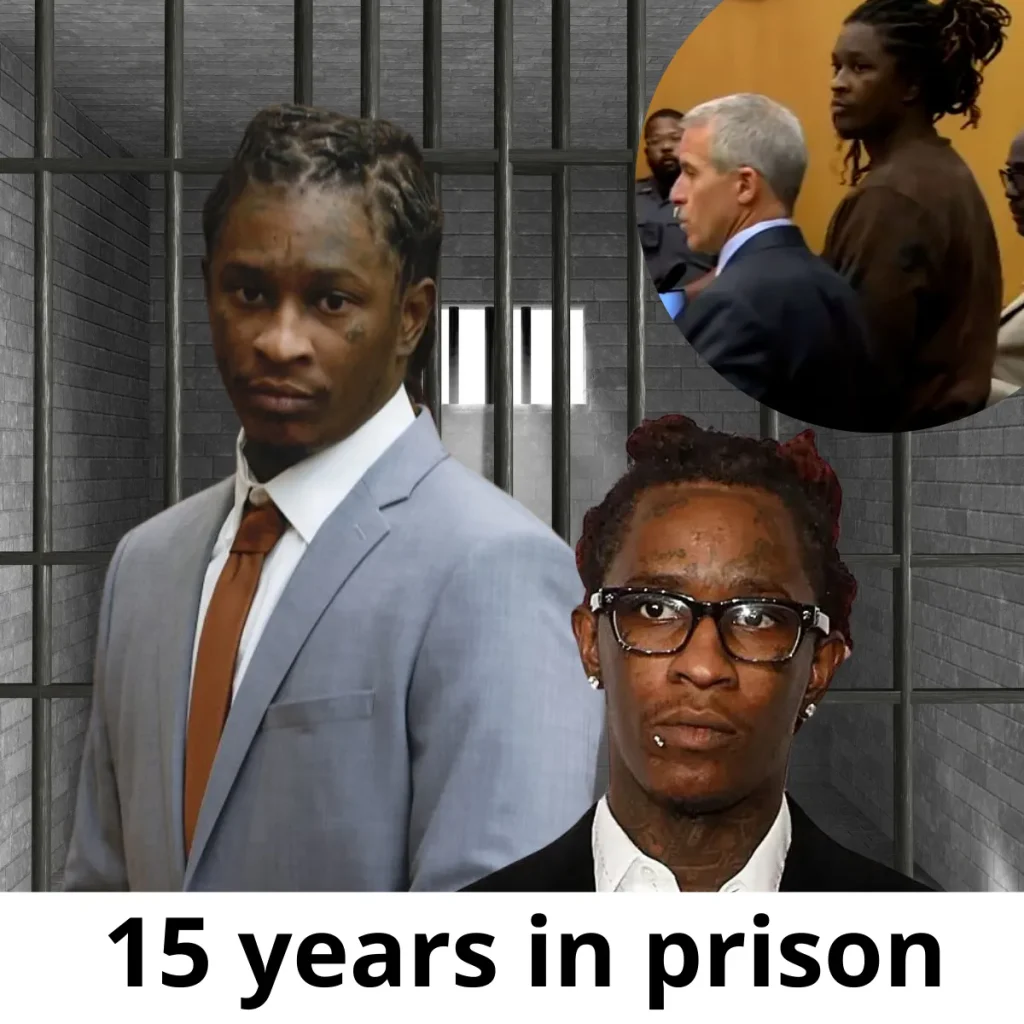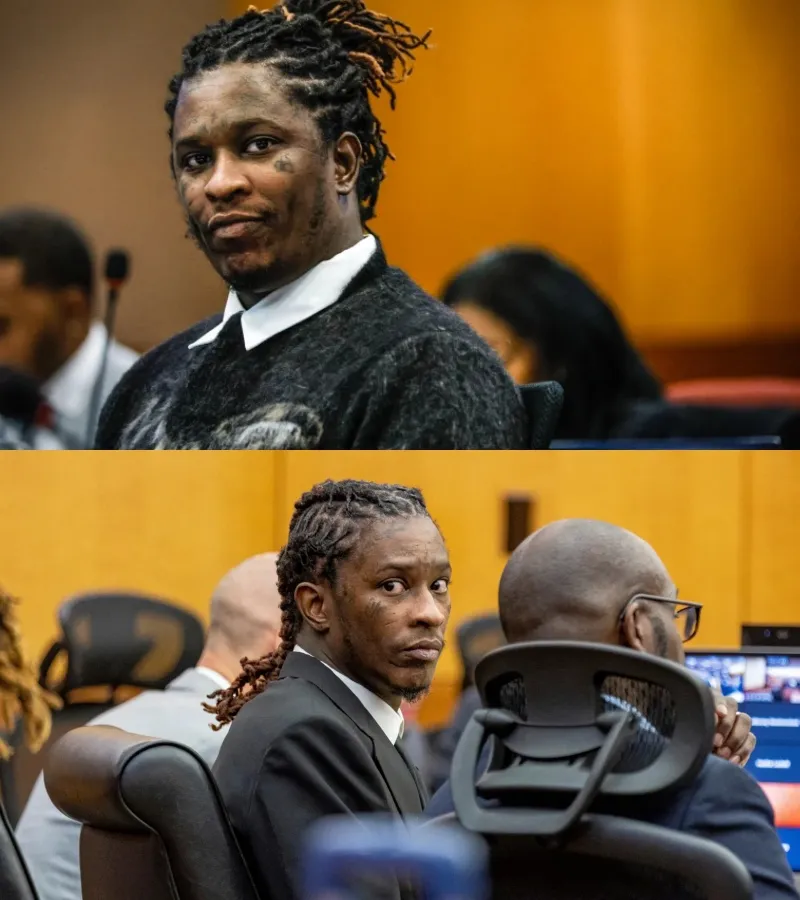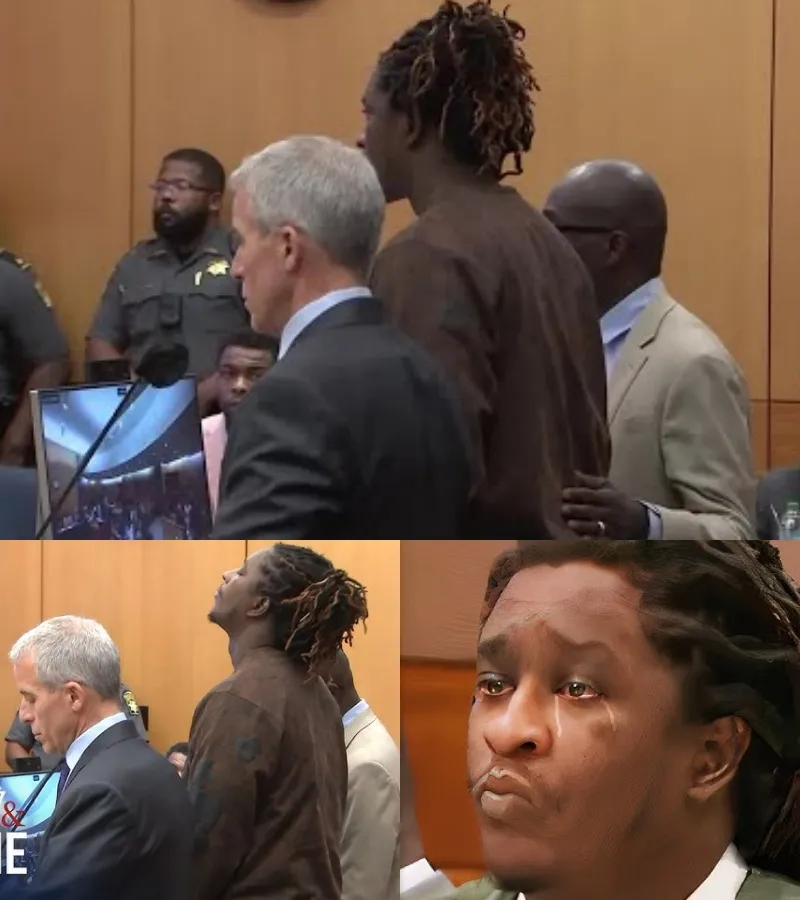
Rapper Young Thug has been sentenced to prison in connection with a large case initially involving dozens of defendants.
According to jail records, the rapper, whose real name is Jeffery Williams, was released on Thursday evening after over 900 days in custody. He will serve a 15-year probation term under a no-contest plea agreement.
Williams accepted the plea deal on Thursday, admitting guilt to multiple charges, including weapon possession and involvement in street gang activities. However, he neither contested nor admitted to the charges of extortion and leading a criminal street gang. This case marks the longest-running trial in Georgia’s history. In 2022, Williams was charged along with over two dozen others under Georgia’s Racketeer Influenced and Corrupt Organizations (RICO) Act.

Prosecutors allege that Williams led a violent street gang responsible for murder and various violent crimes in Atlanta over the past decade. He has denied any role as a crime boss. The state argued that Young Stoner Life Records (YSL), Williams’ label, is also a gang known as Young Slime Life, which is linked to the national Bloods gang. Prosecutors sought to prove that Young Thug was YSL’s leader and linked to crimes committed by its members, including a 2015 shooting death of a rival gang member. They claim Williams rented a car used by YSL members to carry out the killing.
Several other defendants, including rapper Gunna, accepted plea deals or were removed from the trial, with Young Thug among the remaining six defendants. He has been in custody since his May 2022 arrest. When asked if he had any comments, Williams took responsibility, apologized to his family, and asked Judge Paige Reese Whitaker to allow him to go home.
“I am a smart guy. I am a good guy. I really got a good heart,” Williams told the judge. “I find myself in a lot of stuff because I was just nice or cool, you know, and I understand that you can’t be that way when you reach a certain height because it could end (badly).” Williams added that he had learned from his mistakes and mentioned the free concerts and charitable donations he had made to single parents.

Before sentencing, Judge Whitaker advised Williams to aim to “be more of the solution and less of the problem.” She ordered that he stay away from the Atlanta metropolitan area for the first ten years of his probation, except for attending weddings, funerals, and graduations, where he must leave within 48 hours of each event’s end. Additionally, Williams must return to Atlanta four times per year during probation to conduct anti-gang and anti-gun presentations, complete 100 hours of community service each year, and refrain from intentional contact with any street gang members or affiliates.
If convicted on all charges, Williams could have faced up to 120 years in prison.



